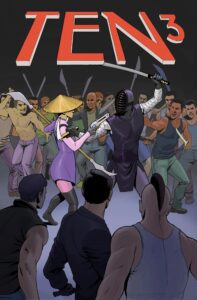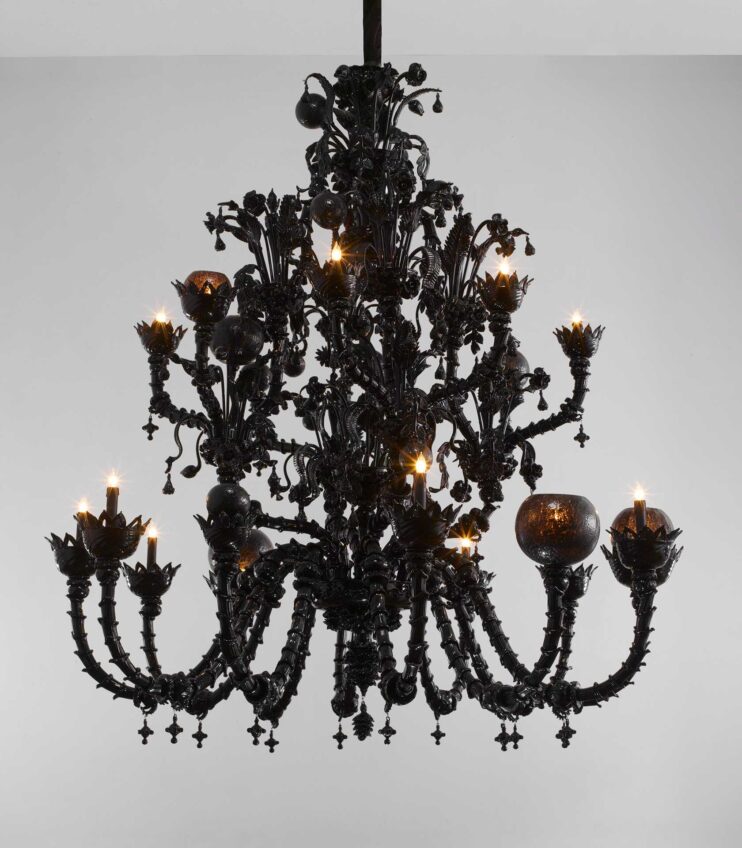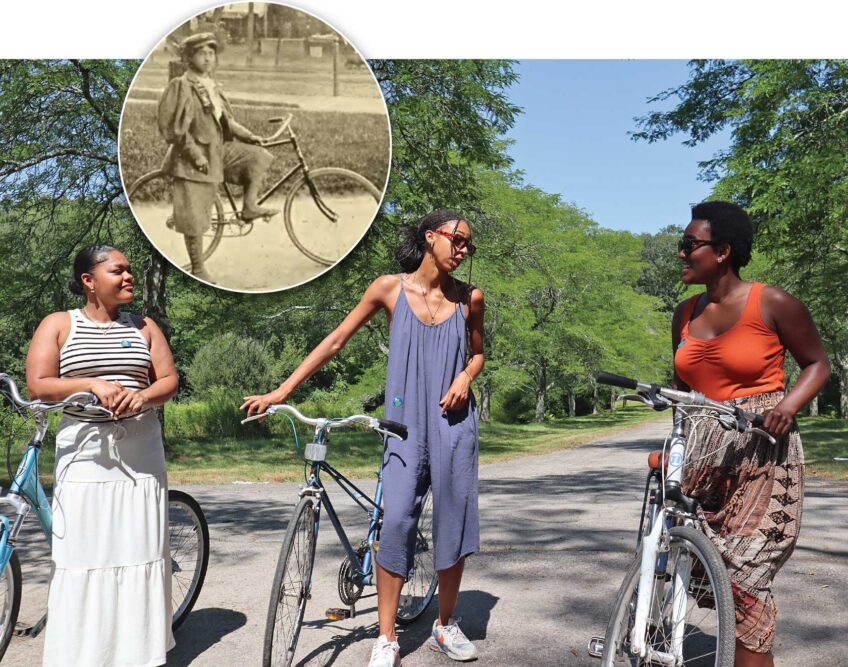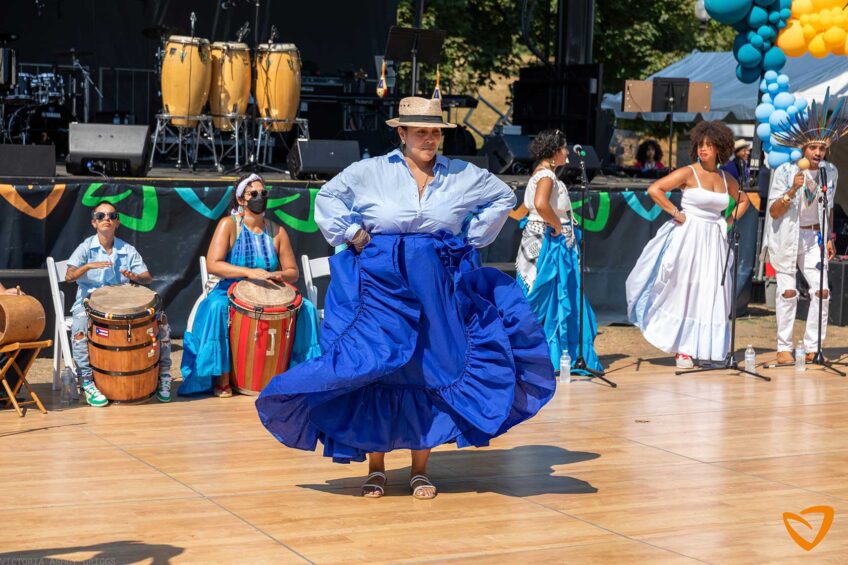The superheroes of the comic ‘TEN’ tackle racism, police brutality and more
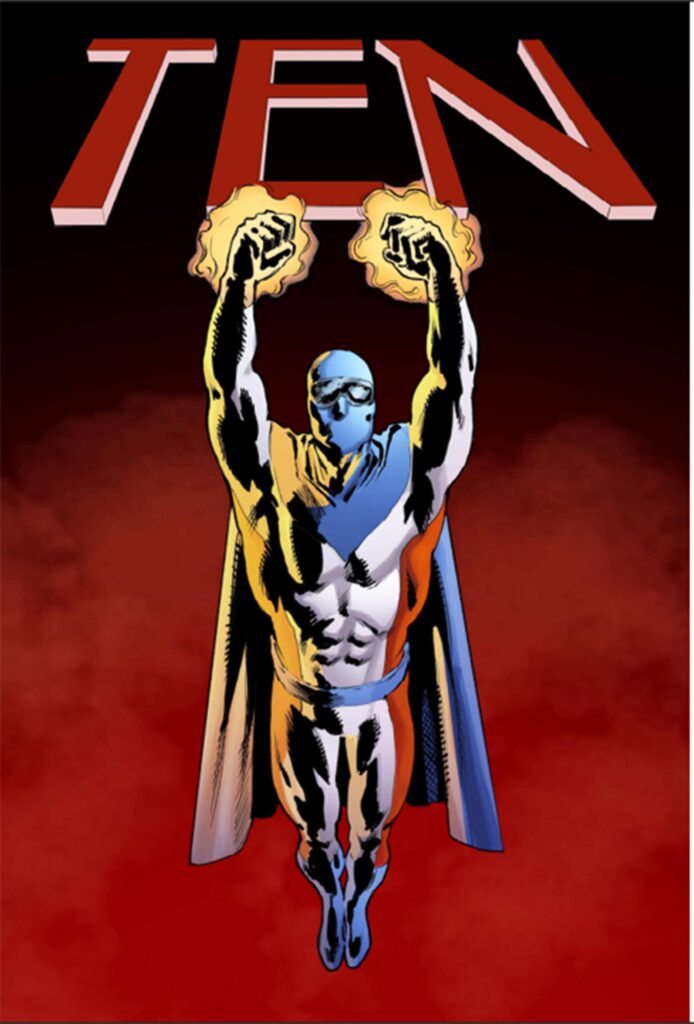
Banner Arts & Culture Sponsored by Cruz Companies
Christopher Rhodes, a lecturer in government and social science at Harvard University and Boston University, has always loved comic books. But during the pandemic, he began to envision a different kind of comic book, one in which superheroes used their powers not just to stop muggings and local crime, but also to fight social battles like racism, police brutality and political unrest. And so he wrote it.
“TEN” is a superhero comic following 10 people who have been given extraordinary powers by otherworldly visitors. Comic books historically have often broached social and political topics within their frameworks. Rhodes points out that even the original Superman fought unjust landlords and wrongful criminal convictions.
But this story takes it a step further and incorporates more of the realities for BIPOC communities. For example the Peacekeeper, a Black superhero operating in the United States, has to constantly dodge hostile media and law enforcement officials who blame him for racial unrest and ongoing protests.
“It’s telling the underlying story of something that’s actually happening or has happened in our real world in a way that’s more palatable for a larger audience,” says Rhodes. “I think there are multiple levels at which you can address these kinds of issues through the superhero narrative that makes it somewhat unique among the kind of storytelling options that we have.”
Rhodes writes the narrative for the comic and works with penciler and inker Marcos Lima, colorist Sal Monaco, letterer Buddy Beaudoin and variant color artist Lane Lloyd to bring the visuals of the story to life.
After deciding to publish the work, Rhodes turned to Kickstarter, a crowd-funding platform with a specific program for funding independent comic book artists. He has published three issues and is currently in the process of sourcing funding through Kickstarter for a fourth issue. One of the surprises for the author along the way has been the vibrancy of the indie comic book community.
“The breadth of stories and imagination that you see from these people, and how supportive these creators often are of one another, helping … everyone succeed and build this kind of growing indie market, has been a really great thing to experience,” says Rhodes.
To get the word out, Rhodes has been showcasing “TEN” at conventions like the Boston Comics in Color Festival and the Massachusetts Independent Comics Expo. Though he enjoys the indie scene, Rhodes says he wouldn’t be opposed to working with a more traditional publisher as well.
The first issues of “TEN” can be found for free on Global Comix and subsequent issues can be purchased through Rhodes’ Kickstarter page.
Rhodes says the stories grapple with real-life challenges and dynamics, but they are ultimately positive tales. He hopes readers will be able to identify with the characters while feeling hopeful for the future.
“My book isn’t that cynical, like some of those more modern adaptations, but it seeks to use the genre in ways where maybe the heroes don’t always win the first round,” says Rhodes.
“Some of the heroes are not so heroic, because it reflects a variety of different experiences, a variety of different outcomes when people are in positions of power and are using those positions to influence the world in ways that they think are best.”



